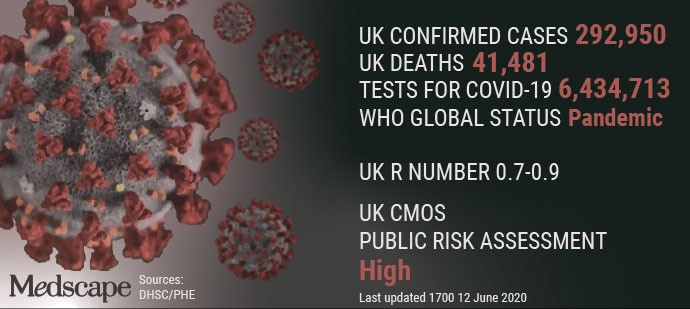COVID-19: What Next for Lockdown UK?
Peter Russell
March 24, 2020
The Prime Minister was clear last night in his
televised address that COVID-19 was "the biggest threat this country has faced for decades".
Boris Johnson's message to the public that they should stay at home, backed up by the draconian threat of police action for those who ignored the instruction, was accompanied with a suggestion that "we can turn the tide within the next 12 weeks".
It was also tempered by a promise to review
the restrictions after 3 weeks.
This afternoon, Health Secretary Matt Hancock told the Commions: "These measures are not advice. They are rules, and will be enforced, including by the police, with fines starting at £30 pounds, up to unlimited fines for non-compliance."
 Restrictions Will Be Reviewed After 3 Weeks
Restrictions Will Be Reviewed After 3 Weeks
Although Mr Johnson hinted that he might relax restrictions if the evidence showed this was possible, Michael Gove, the Cabinet Office Minister did not rule out further tightening if the measures did not slow the virus spread.
"In 3 weeks' time we will be able to say whether or not the path that we followed needs any further intensification," he told
Sky News this morning.
Emergency legislation to give the Government more powers to restrict movement and detain people who are a danger to public health is being fast-tracked through Parliament. The bill passed its Commons stages last night and is being considered by the Lords today.
In the initial stages of the pandemic, the Government had pursued a policy of containment, identifying people with the virus, isolating them, tracking their contacts and asking them to self-isolate. That was followed by policies to delay and flatten the peak to give the NHS more breathing space.
Experts Backed Suppression Over Mitigation
The measures Mr Johnson announced on Monday night followed
research by Imperial College London (ICL) which gave a bleak assessment of likely trends.
The ICL modelling found that pursuing a policy of 'mitigation' could result in a mortality rate of around 250,000 deaths and that 'suppression' was "the only viable strategy at the current time".
However, it came with a warning that "no public health intervention with such disruptive effects on society has been previously attempted for such a long duration of time", and that how people would respond "remains unclear".
That analysis was followed on Monday by
non-peer reviewed research, led by University College London and the University of Cambridge, which concluded that 'mitigation' could lead to between 35,000 and 70,000 excess deaths within a year, and that stronger suppression measures were needed to combat the spread of COVID-19.
Dr Rupert Beale from the Francis Crick Institute, welcomed the Prime Minister's announcement: "Doctors and scientists are working flat out to deliver better testing and better treatments, but this will take time," he told the
Science Media Centre. "Before then we will run out of capacity in intensive care units if we do not obey these instructions."
Rowland Kao, Sir Timothy O'Shea professor of veterinary epidemiology and data science at the University of Edinburgh, warned: "It must be hoped that such measures will only last a relatively short time. However, we must be prepared for this not to be the case, and for them to be in place for an extended period."
Dr Andrea Collins, senior clinical lecturer in respiratory medicine at the Liverpool School of Tropical Medicine, thought the measures "have not quite gone far enough", particularly in mixing in the workplace. She said: "The 'absolutely' necessary to go to work is still being used by some when it is not required - I think we need permits across controlled areas to go to a workplace. Home working is hard for many but it is possible, we just need to adapt to a new way of being."
Prof Sylvia Richardson, director, MRC Biostatistics Unit, University of Cambridge, said: "The increase in the death rate has to be monitored together with information coming from population level testing and other sources to evaluate whether additional measures, such as the ones recently taken in Italy, will need to be taken."
Even more severe restrictions on freedom have recently been imposed in some areas of Italy, which has overtaken China as the nation to register most deaths from COVID-19. In the Lombardy region, all outdoor physical activity, as well as the use of vending machines, was banned on 22nd March.
The Government's
Coronavirus Bill will hand additional powers to the authorities here in the UK to deal with the spread of the virus. People could be detained and treated under mental health legislation using the opinion of just one doctor, rather than the current two; schools and childcare providers could be compelled to stay open to ensure that healthcare workers and other critical staff can go to work; police and immigration officers could detain and isolate people judged to be causing a risk to public health.
The police will have powers to enforce people to comply with the measures outlined by Mr Johnson yesterday through fines and dispersing gatherings of more than two people.
Editor's note, 24th March 2020: This article was updated to include Matt Hancock's statement on fines.








